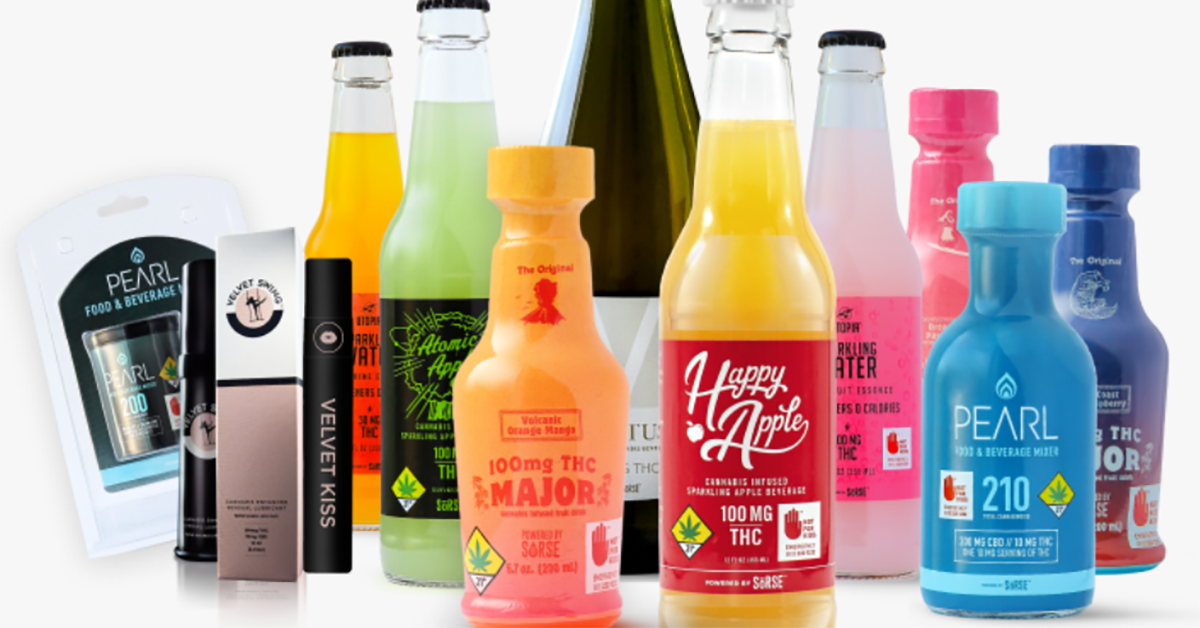Munising Cannabis Co. to Shut Down Despite Local Popularity

The Munising Cannabis Company is slated to cease operations permanently by the end of this year, after just one year in business. Jody Irving, the General Manager of Munising Cannabis Co., highlighted the company's unique approach and the financial burdens it entailed.
Unlike traditional dispensaries, Munising Cannabis Co. operated as a microbusiness, which subjected it to different regulatory constraints affecting its sales and production processes. "Our entire operation was self-contained. We grew our cannabis, processed it, and created our edibles all in-house. While this approach was aligned with our vision, it proved to be financially unsustainable, involving high costs in growing, labor, and overall management," explained Irving.
As the company prepares to close, it is currently offering a 40% discount on all items, a promotion that is expected to increase in the coming weeks. Despite the impending closure, Irving expressed pride in the company's achievements, "We aimed to make Munising proud. Being the only microbusiness in the Upper Peninsula and receiving recognition as the number one in the state by Michigan Green State magazine were significant milestones for us. However, these accolades were not sufficient to keep our business viable."
The company's struggles were exacerbated by its late opening in October of the previous year, missing the crucial tourist season. This delay was attributed to state-level procedural setbacks. "Starting a business in the winter, especially in a tourist-dependent area, posed its own set of challenges," Irving remarked.
The closure of Munising Cannabis Co. will affect its six employees, who are now seeking employment elsewhere. The tentative closing date is set for December 27th, after which the building will be put up for sale or lease. The decision to shut down comes amidst stiff competition from two other marijuana dispensaries in the area and the high costs of maintaining its unique microbusiness model.
Lake and Leaf Cannabis Retailer in Michigan Shuts Doors Amidst Asset Seizure

Lake and Leaf, a cannabis retail shop located on U.S. 31, has temporarily ceased operations following a recent asset seizure order by the Kent County 17th Circuit Court. The order, executed on November 8th by Court Officer Kurt Orosz and colleagues, has left the business shuttered since.
Benzie County Sheriff Kyle Rosa confirmed the involvement of his office, stating that a deputy was dispatched to the scene during the seizure. However, details surrounding the reasons for the asset seizure remain undisclosed, as Orosz was unavailable for comment.
The shop's owner, David Seman, acknowledged the financial difficulties facing Lake and Leaf. He pointed out the lack of federal oversight in the cannabis industry as a significant hurdle, especially regarding banking services. This situation has compelled marijuana entrepreneurs like Seman to seek private investments, often accompanied by high-interest rates, making it challenging to maintain cash flow and operations.
Despite Michigan legalizing medical marijuana sales in 2008 and recreational sales in 2018, federal law continues to prohibit its use. This legal discrepancy prevents banks from providing services to marijuana businesses, a situation that complicates financial management for enterprises like Lake and Leaf.
The seizure at Lake and Leaf was specifically directed at products belonging to two holding companies, KDDS Enterprises, LLC and Midori Products, LLC, as per a report from the Benzie County Sheriff's Office. Furthermore, court documents reveal that Leaning Rock Investments, LLC, has filed for bank account garnishments against Midori Products since April.
Opening its doors in the summer of 2020, Lake and Leaf had revitalized a previously vacant building, which underwent significant renovations from a state of disrepair. The business had employed up to 27 individuals at one point, but due to recent events, many have been laid off.
Contrary to circulating rumors, there is no evidence suggesting that Lake and Leaf had tax issues or conflicts with the state's marijuana regulatory agency. However, the challenges faced by small startups like Lake and Leaf in a market increasingly dominated by larger corporations are evident. These larger entities often have the resources to open multiple stores and engage in litigation to secure their interests.
A U.S. District Court ruling in 2022 highlighted the latitude municipalities possess in awarding cannabis licenses, considering factors like the rehabilitation of old buildings as a positive attribute for applicants.
The closure of Lake and Leaf comes amidst a market environment where retail marijuana prices are dropping due to increasing saturation. Despite the challenges, Seman remains hopeful, expressing gratitude to the majority of Lake and Leaf's creditors for their patience and understanding. He emphasized the importance of company longevity, community commitment, and adaptability in the dynamic cannabis market, expressing his intention to reopen the business with a focus on cost-cutting and expanding retail operations.
Sweet Cheeks Chocolate Recall in Michigan for Exceeding THC Limits

A recall has been issued for a batch of marijuana-infused chocolates due to concerns that the potency of each dose exceeds the state's legal limits and lacks consistency. The product in question, Sweet Cheeks White Chocolate Booties, was distributed in 94 packages across two locations: Endo in Adrian and Farmhouse Provisioning Center in Gould City, between June 16th and October 17th, 2023. According to David Harns, a spokesperson for the Cannabis Regulatory Agency (CRA), 32 packages have been sold.
The recall, announced by the CRA on November 20th, was initiated because the producer, Bloomfield Development Group Grow, failed to demonstrate that the product met homogeneity standards, and the THC content per serving surpassed the 10 mg limit. Homogeneity refers to the even distribution of THC in each dose. The product, listed in the statewide monitoring system METRC as 'Sweet Cheecks White Chocolate 10 pc' and as 'Sweet Cheeks' on the packaging, is part of a line of THC-infused edibles by Underground Edibles, known for naming products after the human posterior.
Jeffrey Dotson, owner of Bloomfield Development Group Grow, admitted overlooking the homogeneity testing requirement. The chocolates, an extension of a popular dark chocolate version, were produced in a sample run of 100 bags that passed other safety tests. Dotson disclosed that one of the chocolates contained over 17 mg of THC, exceeding the state's maximum limit of 10 mg per recreational dose. He mentioned that dosage instructions, advising consumers to break the chocolates in half, should have been included on the packaging to align with state regulations.
Bloomfield Development Group Grow, which also operates the Golden Shores Cannabis Company brand, is known for its innovative approach, including producing pre-rolled joints with biodegradable beeswax tips containing a wildflower seed. The group, owning Farmhouse Provisioning Center and having facilities in Warren, faced a similar recall in July over chocolate bars with excessive THC levels.
The investigation into Sweet Cheeks began in August following the earlier recall. Dotson confirmed that the edibles have been quarantined and off the market for over a month. Consumers who still possess the recalled product are urged to return it to the retail store for proper disposal. The CRA encourages anyone experiencing adverse health effects from licensed cannabis products to report them through an adverse reaction form or by contacting 517-284-8599. Queries about the recall can be directed to [email protected].
Indigenous Enterprises in Mount Pleasant Eye Marijuana Industry Expansion

In Mount Pleasant, Michigan, indigenous businesses are making a significant impact, managed by the Migizi Economic Development Center (Migizi EDC), a subsidiary of the Saginaw Chippewa Indian Tribe. These businesses, deeply rooted in cultural heritage, are now looking towards future growth, particularly in the marijuana industry.
During the recent "Soup and Substance" event, sponsored by Central Michigan University's Office of Indigenous Affairs and Office of Diversity, Equity and Inclusion, Migizi EDC representatives discussed their ventures and future plans. Panelists included Bonnie Sprague, General Manager of Soaring Eagle Waterpark and Hotel, and Brian Smith, Director of Economic Development at Migizi EDC, among others.
Migizi EDC's portfolio, featuring businesses such as the Soaring Eagle Waterpark and Hotel, is characterized by a strong emphasis on cultural identity. For instance, the Waterpark incorporates the Anishnabemowin language and shares Native American stories and principles, including the revered grandfather teachings. These cultural integrations are part of a broader strategy to embed indigenous heritage into business operations.
A significant revelation at the event was Migizi EDC's interest in expanding into the marijuana sector. Brian Smith elaborated on the challenges faced in this endeavor, stemming from complex interactions between state laws, federal regulations, and tribal sovereignty. Unlike other indigenous businesses, the marijuana industry poses unique regulatory challenges, particularly concerning licensing and banking restrictions.
Smith highlighted the necessity of negotiating with the cannabis regulation industry and the Michigan treasury to align with state requirements while maintaining tribal sovereignty. These efforts are part of a broader strategy to diversify the economic activities of the Saginaw Chippewa Indian Tribe while preserving its cultural integrity and reputation.
This move into the marijuana industry marks a significant step for Migizi EDC, as it navigates the intricate balance between cultural heritage, tribal sovereignty, and regulatory compliance. The potential expansion into this sector demonstrates the evolving landscape of indigenous business enterprises in Michigan and their adaptive strategies in a rapidly changing economic environment.
Major Beverage Line by Nevis Brands to Launch in Michigan with Emerald Canning Collaboration

Nevis Brands Inc., a leader in the cannabis beverage sector, has announced a significant expansion into the Michigan market, which represents its entry into the eighth state in the cannabis industry. This development is made possible through an exclusive agreement with Emerald Canning Partners, a Michigan-based production facility, to manufacture and distribute Nevis Brands' Major products in the state. This collaboration is currently pending approval from the Michigan Cannabis Regulatory Agency.
Michigan is a critical market for Nevis Brands, having recorded cannabis sales of $2.3 billion in 2022, with projections indicating this figure could surpass $3 billion in 2023. The state's robust market makes it an ideal second Eastern United States territory for Nevis Brands to establish a licensee presence.
The agreement grants Emerald Canning Partners the exclusive rights to produce and distribute all five flavors of Major, a renowned dosable 100mg THC beverage. This beverage line, known for its rapid onset of effects within 10-20 minutes, includes flavors such as Sunset Pink Lemonade, Pacific Blue Raspberry, Sacred Grape, Volcanic Orange Mango, and Passionfruit. Since its initial launch in Washington State in 2019, over 5 million bottles of Major have been sold.
John Kueber, CEO of Nevis Brands, expressed enthusiasm about the expansion and the partnership with Emerald Canning Partners, highlighting their track record in producing high-quality products and delivering a respected customer experience through their retail network. He anticipates that Major will be available to Michigan consumers in early 2024.
Emerald Canning Partners, a joint venture between Pleasantrees and Andrew Blake of Blake's Hard Cider, is recognized for its role in advancing Michigan's cannabis landscape. The partnership with Nevis Brands will add Major to its growing list of house brands and licensing partners, thus expanding the category's presence in the state. Bryan Wickersham, President of Pleasantrees, remarked on the growing consumer interest in cannabis beverages and praised Emerald Canning Partners for its role in introducing innovative products through strategic partnerships.
Nevis Brands continues to innovate and develop cannabis products that have reached millions of consumers across multiple states including Washington, Oregon, Colorado, Arizona, Nevada, Ohio, and is set to enter California next year. The company's flagship brand, Major, has been instrumental in its growth and market presence.
Nevis Brands Inc. is publicly traded on various stock exchanges, including the CSE under the symbol "NEVI," the OTC under PSCBF, and the Frankfurt Stock Exchange under the symbol "8DZ". Emerald Canning Partners, located in the historic Gibraltar Trade Center in Mt. Clemens, Michigan, combines expertise in premium beverage crafting with high-quality cannabis to make a significant impact in the cannabis-infused beverage market.
Michigan's CRA Suspends Licenses of Muha Meds Over Safety Concerns

Michigan's Cannabis Regulatory Agency (CRA) recently took decisive action against Pinconning-based processor, Michigan Investments 10 Inc., whose products are marketed under the Muha Meds brand. The agency suspended the company's licenses citing serious concerns for customer health and safety.
The decision was made following a thorough investigation by the CRA, which revealed multiple regulatory breaches. The agency's findings showed that Michigan Investments 10 Inc. had incorrectly input data into Michigan's statewide monitoring system, Metrc, and failed to accurately track substantial quantities of their product. The investigation also uncovered products missing essential Metrc tags, rendering them untraceable to the legal cannabis market. Additionally, there were discrepancies between the company's physical inventory and its recorded Metrc inventory.
The products in question, including vape cartridges, infused pre-rolled joints, and gummies, had passed compliance testing. However, the CRA expressed concerns over their traceability, as these products could not be linked back to regulated batches of marijuana flower and concentrate. Given this lack of traceability, the agency stated that it could not assure the safety of these products.
Further issues were identified with Michigan Investments 10 Inc.'s handling of product sampling and testing. The company was found to have failed in providing adequate product quantities for testing and in correctly logging test results in Metrc. The CRA also noted inconsistencies in test results at various stages of product development.
In response to these findings, Michigan Investments 10 Inc., through a statement by employee Jenna Mullins, expressed their commitment to resolving the issues. The company acknowledged the CRA's initial administrative hold placed in September and stated that operations were temporarily resumed after addressing the agency's initial concerns. However, the subsequent suspension of their licenses came as a further setback.
In their statement, Michigan Investments 10 Inc. affirmed their dedication to providing high-quality cannabis products and services. The company expressed its intent to actively engage with the CRA to clarify requirements and work towards a prompt reopening of their facility. They emphasized their commitment to defending against the CRA's actions and assured customers of their confidence in their products.


 Helpful Links
Helpful Links